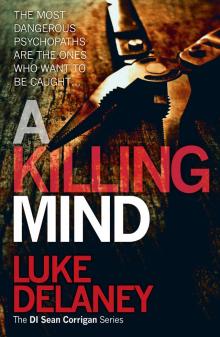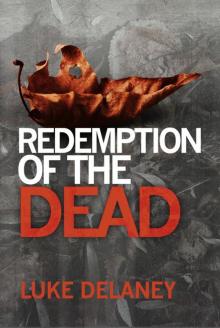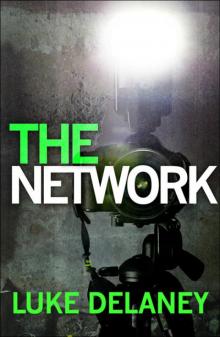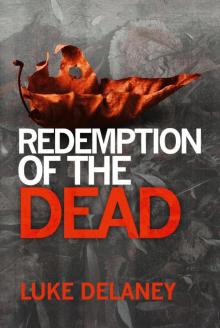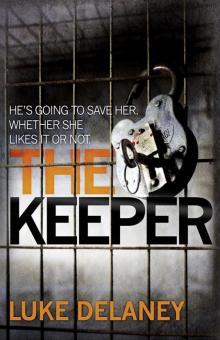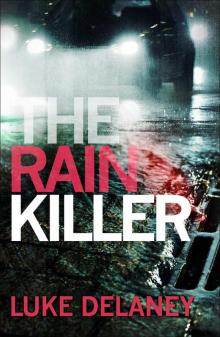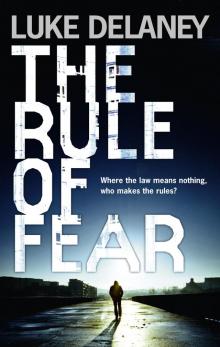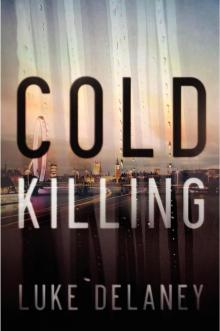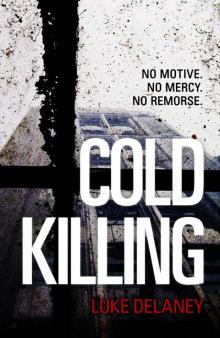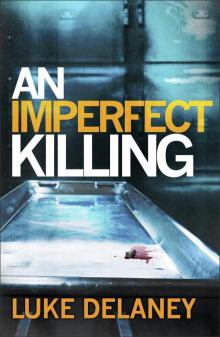A Killing Mind, page 3
part #5 of DI Sean Corrigan Series




‘You have authority to interview this Broadmoor patient?’ the big nurse asked rhetorically.
‘I do,’ Jackson replied searching for his paperwork.
‘That won’t be necessary,’ the nurse assured him, keen to move on. ‘And you have agreed to this interview?’ he asked the man in restraints.
‘I have,’ the man answered, his cold, black eyes never leaving Jackson. His voice was calm and assured.
‘Mr Jackson,’ the nurse told him, ‘I strongly recommend that you have myself and Officer Brenan here throughout the interview – in the best interests of everyone.’
‘No, no, no,’ Jackson argued. ‘The agreement was that the interview is to be conducted in private. I’m a journalist and therefore anything I’m told is journalistic material and subject to journalistic privilege,’ Jackson reeled out the well-practised spiel. ‘This has all been arranged and agreed in advance with the hospital directors. The agreement was for the interview to be conducted in private – as I’m sure you have been informed.’
The big nurse took a deep breath as he looked back and forth from Jackson to the prisoner in restraints. ‘Very well,’ he submitted, ‘but we’ll be right outside watching everything on CCTV. If you need us, we’ll get to you fast.’
Jackson swallowed hard as he noticed the concern in the big nurse’s eyes. ‘Fine, so long as there’s no sound on the monitor,’ he managed to say while hiding his fear, ‘and no bloody lip readers either.’
The nurse ignored him. ‘In order to allow this interview to be conducted with no hospital staff present it has been necessary for the patient to consent to wearing restraints at all times. That consent has been given.’ He looked at the man in the leather handcuffs, who gave a single nod. ‘Sit down please,’ the nurse ordered. Gibran did as he was told and slid into a seat opposite the spot where Jackson remained standing, his eyes never leaving the journalist – studying him. ‘I’m going to remove your hands from the waist restraint now,’ the nurse explained, ‘and secure them to the table fastenings. If you resist in any way we’re authorized to use whatever force is necessary to make you compliant. Do you understand?’
‘I understand perfectly,’ Gibran answered politely, turning his wrists as much as he could to make it easier for the prison officer to release them. After a nod from the nurse, the officer stepped forward and released one arm, securing it to the table then doing the same with the other, before stepping back a little too quickly, betraying his fear.
‘He’s all yours, Mr Jackson,’ the nurse told him, ‘but remember – don’t get too close or touch the patient in any way. And under no circumstances are you to give him anything whatsoever. All items the patient receives must be submitted to the hospital staff first for clearance. Do I make myself clear?’
‘I know the rules,’ Jackson answered, trying to sound confident and in control, despite his pounding heart.
‘Very well,’ the nurse said, turning on his heels and leaving the room, closely followed by the prison officer. Jackson watched the heavy door being pulled shut and listened to the key turning heavy locks and he knew he was now alone with arguably the most dangerous killer of modern times.
‘Sebastian Gibran,’ Jackson struggled to speak, barely able to believe that he was alone in the room with Britain’s most notorious serial killer. ‘Thank you for seeing me. I can’t tell you how much it means.’
‘Geoff Jackson,’ Gibran ignored Jackson’s platitudes. ‘Chief crime editor for The World,’ he continued, referring to the red-top newspaper Jackson worked for.
‘Britain’s most read,’ Jackson couldn’t help himself saying, although he regretted it almost immediately.
Again Gibran ignored him, his black eyes searing into Jackson, probing him, until he suddenly smiled and seemed to relax – inhaling the tension in the room and replacing it with an atmosphere of cooperation in that way that only the truly powerful and self-confident can. ‘Well, I should congratu-late you on getting permission to see me, Mr Jackson. You appear to have succeeded where many have failed – and, believe me, many have failed, although I would never have agreed to meet them anyway. Half-baked novelists and playwrights looking for titbits to shock and scare the poor unsuspecting members of public. Can you imagine anything more tedious?’
‘I know a couple of the directors here,’ Jackson explained. ‘Promised I’d show this place in a good light, if I was allowed to meet you.’
‘I see,’ Gibran nodded.
‘You said you wouldn’t have seen the others who wanted to meet you,’ Jackson reminded him. ‘So why me? Why did you agree to meet me?’
‘Because you have a pedigree, Mr Jackson,’ Gibran told him. ‘You’ve earned the right.’
‘Please,’ Jackson told him, shaking the confusion from his head. ‘You can call me Geoff.’
‘No,’ Gibran consolidated his control. ‘Mr Jackson will do for now.’
‘Erm,’ Jackson wavered slightly, ‘if that’s what you’re comfortable with. You were saying – I have a pedigree?’
‘You interviewed Jeremy Goldsboro – correct?’
‘Yes,’ Jackson answered. ‘Yes, I did. While he was still at large and the police were looking for him.’
‘That must have taken great courage.’ Gibran’s eyes continued to scrutinize him. ‘To meet a killer. Alone.’
‘It was a great story,’ Jackson tried to explain. ‘A killer with a cause. A man of the people trying to fight back for the little man.’
‘Only it was a lie,’ Gibran reminded him. ‘He killed for his own satisfaction. Tell me, Mr Jackson, would you have still met him if you’d known he was really just a vengeful, jealous killer and not the man of the people he pretended to be?’
‘Probably,’ Jackson admitted.
‘Why?’ Gibran demanded.
‘It would have been a great story in any case,’ Jackson explained. ‘Perhaps even better. A unique insight into the mind of a coldblooded killer while he was on the loose and killing. It would have been huge anyway.’
‘And if you’d ended up becoming one of his victims?’ Gibran asked.
‘Wouldn’t have happened.’ Jackson smiled. ‘Whether I’m dealing with a killer with a cause or a mindless killer, it makes no difference. They’re not going to hurt me.’
‘Why?’ Gibran pushed.
‘If they’re talking to me, it’s because they want publicity,’ Jackson answered. ‘Why kill the person who’s going to give them what they want?’
‘Because not everybody does what’s expected of them,’ Gibran argued. ‘In some people the urge to kill overpowers everything else. Perhaps you should remember that.’
Jackson paused before answering. ‘Would you have?’ he asked. ‘Would you have killed me, if we’d met when you were free?’
Gibran leaned back in his chair, his restraints straining and creaking under the strain. ‘Maybe,’ he smiled, ‘but that’s because I’m mentally ill, Mr Jackson. That’s why I’m in here and not prison.’
‘Right, OK.’ Jackson nodded.
A silence spread between them before Gibran spoke again.
‘So what is it you want to ask, Mr Jackson? I should remind you that I can’t talk about the murder and attempted murder I was charged with.’
‘The uniformed cop and the woman detective,’ Jackson clarified.
‘Exactly,’ Gibran confirmed. ‘I may one day be deemed mentally healthy and fit for trial. It would be foolish of me to hand my enemies a stick to beat me with.’
‘By your enemies, you mean the police?’ Jackson asked. ‘Or more specifically Detective Inspector Corrigan?’
For a second all the fury and anger that burned deep inside Gibran flashed in his eyes, but he immediately dragged it back under control. ‘Corrigan is irrelevant,’ he dismissed the man who’d caught him. ‘What is it that you want me to tell you about, Mr Jackson?’
Jackson cleared his throat before he began. ‘Well, some people – quite a lot of people actually – believe you have committed many murders. That you are in fact one of the most prolific serial killers there’s ever been in this country.’ Gibran went to speak, but Jackson held his hand up to stop him. ‘Obviously I’m aware that even if this were true, you’d hardly be likely to tell anyone about it. But perhaps you would give me your thoughts on what it would be like if you were a serial killer. What do you think might motivate such a person? What would be going through their mind? How would they kill and not get caught? No need to mention any specific crimes that may have happened. We could keep it more … generic.’
Gibran considered him in silence for a few seconds. ‘I see,’ he eventually responded. ‘And what would you do with such … information?’
Jackson shifted in his seat before answering. ‘My intention is to serialize the interviews in the paper. One a week. Maybe more. We’ll see how it goes, but I believe readers will be fascinated.’
‘Even though I’m not discussing details of real crimes?’ Gibran queried.
‘Trust me,’ Jackson smiled. ‘The readers will fill in the blanks for themselves. It’s your … unique background that will sell it. The fact you’re locked up here in Broadmoor won’t hurt either.’
‘And how do you profit from all this, Mr Jackson?’ Gibran asked. ‘To increase your standing with your editor doesn’t strike me as sufficient motivation for a man like you.’
‘No,’ Jackson agreed, once more squirming uncomfortably. ‘The pieces in the paper would be largely to draw people in. A few weeks after they stop I’ll release the book of our interviews. The bigger picture. What it’s really like to be someone like you.’
‘Someone like me?’ Gibran questioned, leaning in as close as the table and restraints would allow. ‘How could you or your readers ever know what it’s like to be me?’
‘They might,’ Jackson argued. ‘If you tell them.’
Gibran leaned back in his chair before changing tack. ‘Why do you want to write a book about me when you’ve already had one published? One that contained a great many unsubstantiated allegations, I may add.’
‘Allegations made by the police,’ Jackson explained. ‘Not me. I was just reporting on the investigation, working on what the police gave me. There was no opportunity to put your side of things across. But there is now – if you want to.’
‘And why would I do that?’ Gibran asked. ‘Why should I care what the police or public think I am or what I’ve done? What makes you think they’re anything to me?’
Jackson knew Gibran would never be enticed into cooperat-ing by the chance of helping others understand what he was. Gibran existed to satisfy himself and no one else. Jackson knew his psychological profile well. Gibran was as pure a sociopath as had ever allowed themselves to be caught – totally incapable of feeling remorse or guilt. He’d most likely been that way since the day he was born – a killer created by nature or God. Not some sorry case of a normal man turned into a monster by tragic circumstances of child abuse or mental illness. He’d had a privileged background and an apparently happy childhood, although even then he probably knew what he really was. He was well educated and went on to have a successful career, a wife and children, yet it had all been a smokescreen, cultivated to provide cover for the real Sebastian Gibran: a psychopath who killed for the pleasure of killing.
The only way to persuade such a man to play ball would be to convince him that doing so would benefit him.
‘Do it for yourself then,’ Jackson told him. ‘Do it for your own … amusement.’ Gibran said nothing. ‘You would be able to see the final manuscript before it’s published,’ Jackson tried to persuade him.
‘If I was the type of person you think I am,’ Gibran responded, once more changing the subject without warning, ‘why would I have to kill? Tell me, Mr Jackson: why would I feel compelled to kill?’
‘No,’ Jackson answered, the excitement swelling in his stomach. ‘You tell me.’
‘Because, if I was like that,’ Gibran explained, ‘it would be in my nature to kill. It would be as instinctive to me as breathing is to you. I would have to kill to live. I could survive without it, but I wouldn’t be alive. I wouldn’t kill to satisfy some sexual urge, or because voices in my head told me to, or because I’d grown to hate a world that had spited and tortured me. I’d kill simply because it is in my nature to do so. That is, if I was the person you think I am. You see, Mr Jackson,’ he continued, leaning into the table, ‘people like that aren’t mere human beings. They’re superhuman. Gods amongst mortals. It is their right to take the lives of inferior beings at will. Is it not a basic principle of evolution that the superior branch of a species eventually brings about the extinction of the inferior strain? Read Friedrich Nietzsche’s Superman philosophy, Mr Jackson. Since God is dead it is necessary for the emergence of the Overman, who is to replace God.’
Jackson stared at Gibran, opened-mouthed, before recovering his senses. ‘I’ll look it up,’ he answered. ‘Sounds very … interesting.’ Jackson blinked unconsciously as he cleared his mind. ‘So … how would a person like this select their victims?’ he asked. ‘Would they be attracted to a particular type of person? Do their victims unwittingly draw these … Overmen to them?’
‘To the Overmen, everyone is a potential victim, Mr Jackson. But enough for one day,’ Gibran insisted, his mouth suddenly smiling – his teeth straight and white despite years of incarceration in a mental hospital. ‘I’ve enjoyed our chat. Make another appointment and we can speak again. But for now, could you do me a favour and summon my protectors.’ He pointed with his chin to the intercom attached to the wall. ‘I’m afraid I can’t quite reach.’
‘Of course,’ Jackson agreed, getting to his feet while trying to control his excitement at having potentially hit the jackpot. ‘And you can be sure I’ll make another appointment.’
‘Well then,’ Gibran closed the interview. ‘Until next time.’
Sean took one last hard look at the two photographs he’d selected from the files. One from each murder scene – both showing full-length body shots of the prostrate victims lying flat on their backs, arms limp and straight at their sides. He suspected they were dead or as good as dead before the killer set to work removing their teeth – stretching his victims out before him to make the task easier. Or was there some other reason for the positioning of the bodies? Some ritual act of the killer or killers? He shook the thoughts away before they led him to a path he could end up following for hours – trying to get an early glimpse of the man he was now hunting. That was how it happened. He’d woken that morning just another man. A detective investigating serious, but not unusual crimes. Crimes that any good detective could handle. Over the last few months, investigating those everyday crimes, he’d grown calmer; happy to be at home with his family, working to earn money to pay for the mundane things all families need, leaving it all behind when he left the office instead of being haunted night and day by the crimes he was investigating. But the instant Featherstone had handed over those two folders, all that changed. Now he was a hunter of men again.
Already he sensed there was something about this killer. Something that made Sean feel their destinies had been set on a collision course. He took a deep breath before snatching up the files and heading to the office next to his where his two deputies, DS Sally Jones and DS Dave Donnelly, were both staring intently at their computers, swearing and moaning as if they were competing with each other in a profanity contest.
Sean rapped on the open door and instantly their fingers froze over their keyboards as they looked up in unison. ‘I’ve got something for you,’ Sean told them.
‘Saw you with Featherstone earlier,’ Sally told him. ‘Please tell me he gave us a proper investigation. I can’t stand working with Anti-Terror again. It’s doing my head in.’
‘Hear, hear,’ Donnelly agreed. ‘I’m sick of being shunted around like a stray dog. We need our own job.’
‘Well, we’ve got one,’ Sean announced, ‘and it’s a bad one.’
‘Go on,’ Sally encouraged him.
‘I haven’t got time to repeat myself,’ Sean answered curtly. ‘Get the team together and I’ll brief everyone at the same time.’
Donnelly looked out into the main office and shook his head. ‘Only about half the team here, boss. Rest are busy running errands for the world and his wife.’
‘It’ll have to do for now,’ Sean told him. ‘The rest will have to catch up as and when they can.’ He spun away and marched to the whiteboards that dominated one side of the room, quickly followed by Sally and Donnelly. As Donnelly called everyone to attention, Sean swept the boards clear of any information relating to other investigations and began to pin up photos of the two victims before writing their names above them. Once he was happy with his display, he turned to the gathering audience of detectives and took a deep breath.
‘All right, everyone,’ Donnelly made one last call for attention. ‘Listen up.’
‘Ladies and gentlemen,’ Sean addressed them, ‘we have a new case.’ A few nodded their heads in quiet satisfaction; although nobody spoke, Sean could sense their relief. ‘Two victims. One male. One female. Killed ten days apart. The first – Tanya Richards – was a known prostitute and drug user. The second – William Dalton – was a homeless beggar; he too was a drug user. Both were young. Both were vulnerable. Neither deserved what happened to them. We all know how unusual it is for a killer to vary the gender of their victims, but these two are definitely linked. The killer has a very distinct modus operandi and has been kind enough to leave us his calling card.’
‘Which is?’ Sally asked.
‘He takes some of their teeth and most of their fingernails,’ Sean explained, causing his audience to wince.

